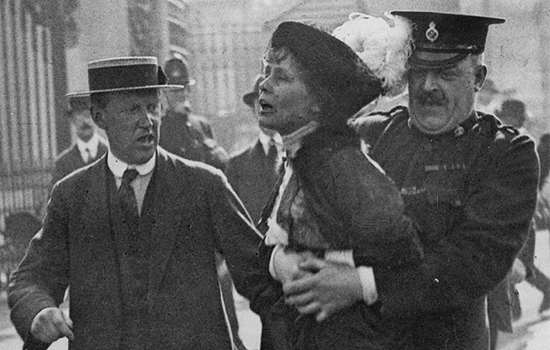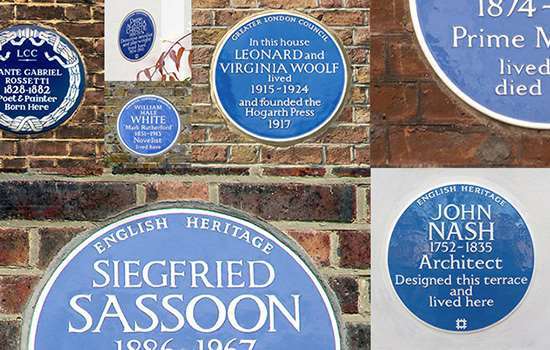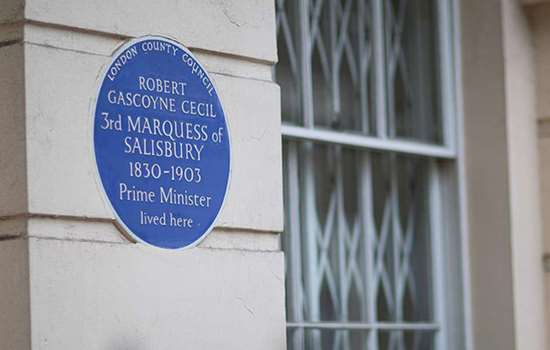HUTCHINSON, LESLIE (1900-1969) aka HUTCH
Plaque erected in 2012 by English Heritage at 31 Steele’s Road, Chalk Farm, London, NW3 4RE, London Borough of Camden
All images © English Heritage
Profession
Singer, Pianist, Cabaret Entertainer
Category
Music and Dance
Inscription
LESLIE 'HUTCH' HUTCHINSON 1900-1969 Singer and Pianist lived here 1929-1967
Material
Ceramic
The singer and pianist Leslie Hutchinson – known to all as ‘Hutch’ – was one of the most popular cabaret entertainers of the 1930s and took London’s café society by storm. Number 31 Steele’s Road was Hutch's home and base for nearly all of the 42 years he lived in London.
GRENADA TO LONDON
Born on the Caribbean island of Grenada, Leslie Arthur Julien Hutchinson was only 16 when he moved to New York and started playing piano at parties. At a party in Palm Beach he was alarmed by the open racism shown by members of the Ku Klux Klan and in 1924 he left the US for Paris with his wife Ella and daughter Leslie. In Paris he met the songwriter Cole Porter, who became a close friend and mentor, and Hutch – as he now styled himself – perfected the art of singing Porter’s songs.
In 1927 Hutch was invited to London by the impresario CB Cochran. Hutch’s nightly cabaret performances soon became the hottest ticket in town and led to a record deal and a string of invitations to play at London’s most exclusive parties.
He moved into 31 Steele’s Road in June 1929 with his wife, daughter and brother, just as he made his breakthrough. It is a detached house built in 1874 and was furnished with a mixture of old-fashioned oak furniture and Art Deco lamps. The piano in the drawing room was strewn with silver ornaments from his admirers. He sold the house in 1967 due to bank debts.
SUPERSTARDOM
By the mid-1930s Hutch was a superstar and mobbed by crowds wherever he went. He created a stir by arriving at nightclubs dressed like an aristocrat and with a white piano strapped to his chauffeur-driven car. He dazzled audiences with his brilliance at the piano and sincere renditions of popular songs. His ability to shift between West Indian, black Harlem, white American and upper-class English idioms ensured that he had a wide appeal. His success was achieved in spite of racial prejudice and he was often asked to arrive by the servants’ entrance when invited to play at grand Mayfair houses.
He conducted a number of high-society affairs in public. His long-standing relationship with Edwina Mountbatten was an open secret in Mayfair clubs and bars. While this scandal closed some doors to him, Hutch went on to perform and record many of his most successful hits, such as ‘Night and Day’, ‘Smoke Gets in Your Eyes’, ‘These Foolish Things’ and ‘Begin the Beguine’. These records, combined with his late-night sessions at London clubs including Frisco’s and Quaglino’s – where he often performed in front of the Prince of Wales and Wallis Simpson – marked the height of his career.
LATER YEARS
During the Second World War Hutch became a popular act variety act and entertained the crowds sheltering in the Underground during air raids. As the war ended, his style of music fell out of fashion, but in 1953 he made a comeback and he returned to Quaglino’s, where he entertained a new generation of bright young things, including Princess Margaret. Following his wife’s death in 1958, Hutch struggled with worsening financial problems and was reduced to playing in tawdry clubs. Hutch died in Hampstead in 1969 aged 69, almost an unknown. Notably, Lord Mountbatten paid for the cost of his funeral.


